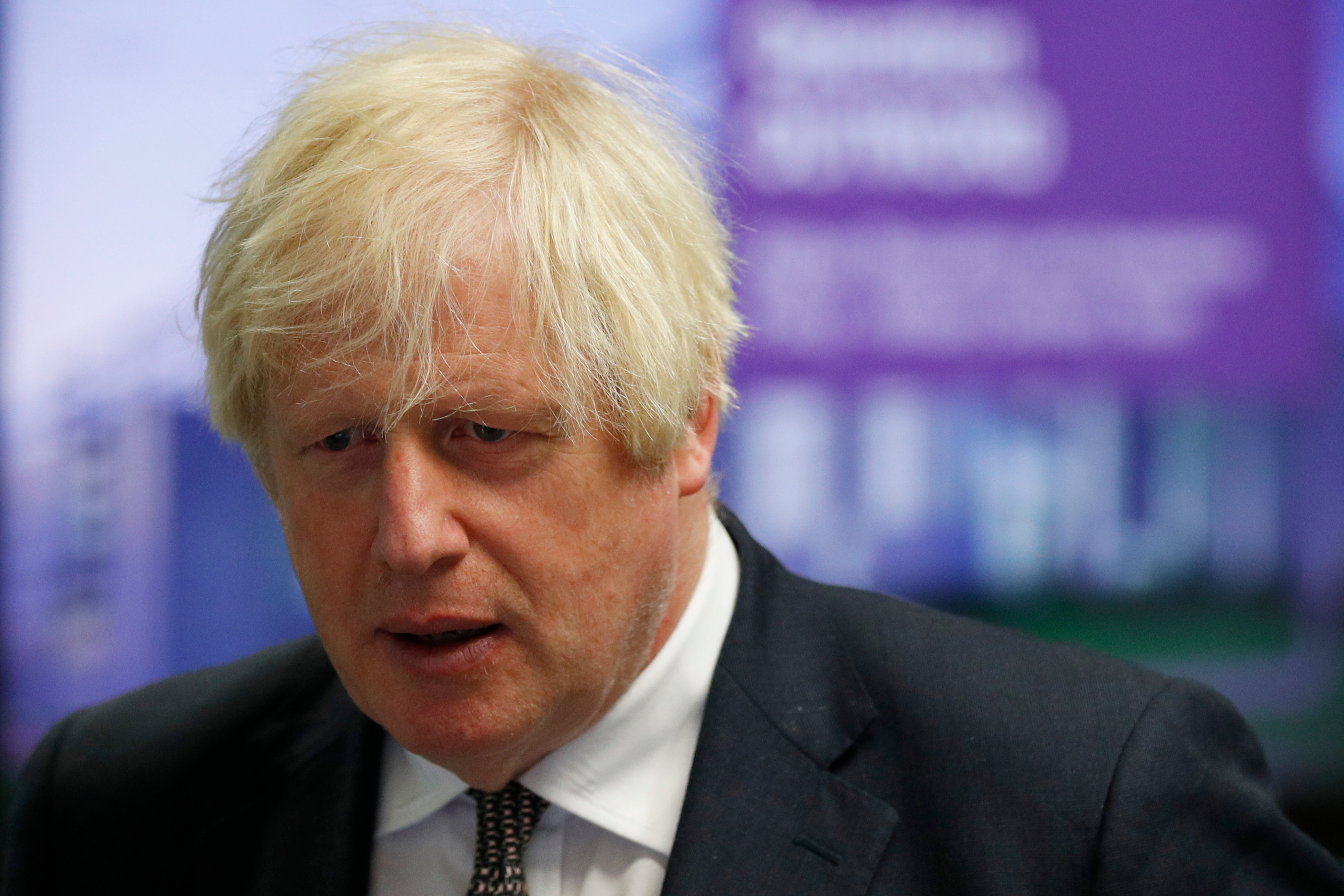Boris Johnson faces prospect of vote on controversial universal credit cut when MPs return
Labour ‘likely’ to table motion on government’s decision to scrap £20-per-week uplift immediately after summer recess

Your support helps us to tell the story
From reproductive rights to climate change to Big Tech, The Independent is on the ground when the story is developing. Whether it's investigating the financials of Elon Musk's pro-Trump PAC or producing our latest documentary, 'The A Word', which shines a light on the American women fighting for reproductive rights, we know how important it is to parse out the facts from the messaging.
At such a critical moment in US history, we need reporters on the ground. Your donation allows us to keep sending journalists to speak to both sides of the story.
The Independent is trusted by Americans across the entire political spectrum. And unlike many other quality news outlets, we choose not to lock Americans out of our reporting and analysis with paywalls. We believe quality journalism should be available to everyone, paid for by those who can afford it.
Your support makes all the difference.Boris Johnson could face a Commons vote on a planned cut universal credit two days after MPs return from summer recess, The Independent understands.
According to the provisional business papers for the Commons, the government has earmarked it could be after prime minister’s questions on 8 September for an opposition day debate.
A source told The Independent Labour was “likely” to force a vote on the issue, but this hasn’t been officially confirmed by the party yet.
Another source added: “If the government won’t backtrack, we’ve said we’ll look at any route we can to give Conservative MPs the choice to either stand up for the constituents or help Boris Johnson inflict this devastating cut on millions of families.”
It comes as controversy grows over the decision to remove the £20-per-week universal credit uplift which was introduced at the start of the pandemic.
Just last week anti-poverty campaigners warned that most constituencies across Britain will see one in three families hit with the “biggest overnight cut in benefits since the Second World War”.
The shadow work and pensions secretary, Jonathan Reynolds, has previously suggested Labour would use “every parliamentary mechanism available” in order to prevent the uplift from being scrapped.
While an opposition day debate motion would be non-binding on the government, it will force ministers and Tory MPs to vote on the issue – just weeks before the £20-per-week uplift is due to be scrapped.
The scale of a possible rebellion is unclear, but disquiet in the Conservative ranks has been growing over the summer months.
In July, the Northern Research Group, representing around 50 Tory MPs, told The Independent they opposed the cut and described the emergency payments as a “life-saver” for claimants.
In an extraordinary move, six former Conservative work and pensions secretaries, including former leader Iain Duncan Smith, also wrote to the government to say scrapping the uplift would “hamper” economic recovery.
And just last week, two Tory MPs – Peter Aldous and John Stevenson – wrote to the prime minister urging him to cancel plans to cut the universal credit payments, saying they had “very serious concerns”.
They said the uplift was one of the Conservatives’ “best legacies from the pandemic” and should be made permanent.
In a report last week, the Joseph Rowntree Foundation claimed 413 parliamentary constituencies across the country will have at least a third of working-age families with children impacted by the cut in the autumn.
“MPs from across the political spectrum are already expressing their deep concerns about this planned cut,” said deputy director of policy Katie Schmuecker. “Now is the time for all MPs to step up and oppose this cut to their constituents’ living standards.”
However, defending the cuts, Mr Johnson told reporters on Thursday: “They key focus for this government is on making sure that we come out of Covid strongly, with a jobs-led recovery, and I’m very pleased to see the way the unemployment rate has been falling, employment has been rising, but also wages have been rising. That’s a crucial thing.”
The prime minister added: “My strong preference is for people to see their wages rise through their efforts, rather than through taxation of other people put into their pay packets, rather than welfare. And that’s the approach we support.”
Join our commenting forum
Join thought-provoking conversations, follow other Independent readers and see their replies
Comments